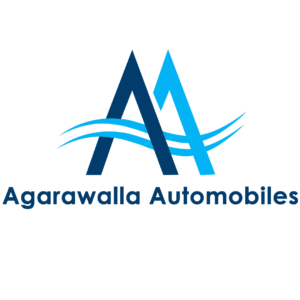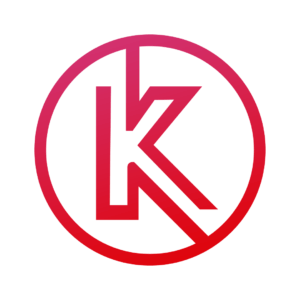Local Business Promotion

Why you should promote your local (physical) business on Digital Platforms ?
Who should go for this service ?
Manufacturer / Trader
Manufacturer and Trader of any level, even a retailer should opt for this service to increase their in-store, B2C. B2B or online (e-com) sells. Plus they will increase their branding which can add value to their business and stand out from competitors.
Service Provider
Businesses like educational institutions, school, college, gym, gent/ladies parlour, boutique, clinic, hospital, real estate, restaurant, hotel, logistic services etc. can opt this service to increase their brand visibility and reputation which directly help them bring more customers.
Individual / Freelancer
Typically a person who is working alone like a celebrity, traveller, lawyer, doctor, advisor, financial and other consultants, writer, web developer, psychologist, tutor, designer, translator, agent etc. can opt for this service for self-branding in various ways which will help to get more clients
Local Business promotion or marketing is all about that targets consumers and customers within a certain radius of the physical location(s) of a business. It is also known as neighbourhood marketing or local store marketing.
It is also about increasing search visibility for businesses that serve face-to-face in communities.

What Can We Do For Your Business?
BRANDING
Branding is the process of doing things which create VALUE for a very very focused AUDIENCE with a very very focused product CONSISTENTLY over a long period Products
CUSTOMER EXPERIENCE
The best way to define your customer experience, the impression you leave on your customer and giving a good customer experience is very much important for the success of your business.
INBOUND MARKETING
A methodology that attracts customers by creating valuable content and experiences tailored to them. It solves problems they already have and forms connections they are looking for.
MARKETING FUNNEL
A framework that helps us to define, understand and follow the different stages that buyers have to pass through during the entire customer life cycle.
LEAD GENERATION
It is the second stage of Inbound marketing methodology which occurs when we attract visitors and convert them to sales qualified leads.
ONLINE REPUTATION MANAGEMENT (ORM)
The practice of taking strategic action to control or improve brands reputation, when necessary. And it is the process of monitoring how your brand is perceived by consumers.
LOCAL SEO
Increase your visibility in the local search results on Google and benefit your business through local SEO.
SOCIAL MEDIA MARKETING (SMM)
The action of creating content to the services and products on various social media platforms. Content should be tailored with a strategy to increase awareness and boost conversions.
B2B & B2C PROMOTION
Business to Business marketing strategy is geared towards a business or organisation. Typically selling of products or services to other businesses or organisation. Business to Consumer strategy typically targets the consumer’s needs, interests and challenges.
MARKETING AUTOMATION
It’s all about using software to automate marketing activities. It provides a more personalised experience to customers with efficiency.
DIGITAL MARKETING ANALYTICS
The translation of customer behaviour into actionable business data by using various digital analytics tools. Analytics helps in create and reshape digital marketing strategies.
STANDARD OPERATING PROCEDURE (SOP)
A list of instructions detailing how to execute routine procedures which are very important for communication and productivity.Business to Consumer strategy typically targets the consumer’s needs, interests and challenges.
Meet Our Clients
They Believe In Us
Some of our Esteemed Clients










Meet Our Clients
They believe in us
-

- Best digital marketing company in Bhubaneswar | SEO agency in Bhubaneswar |Website development |
-

- Best digital marketing company in Bhubaneswar | SEO agency in Bhubaneswar |Website development |
-

- Best digital marketing company in Bhubaneswar | SEO agency in Bhubaneswar |Website development |
-

- Best digital marketing company in Bhubaneswar | SEO agency in Bhubaneswar |Website development |
-

- Best digital marketing company in Bhubaneswar | SEO agency in Bhubaneswar |Website development |
-

- Best digital marketing company in Bhubaneswar | SEO agency in Bhubaneswar |Website development |
-

- Best digital marketing company in Bhubaneswar | SEO agency in Bhubaneswar |Website development |
-

- Best digital marketing company in Bhubaneswar | SEO agency in Bhubaneswar |Website development |
-

- Best digital marketing company in Bhubaneswar | SEO agency in Bhubaneswar |Website development |
-

- Agarawalla Automobiles
-

- Best digital marketing company in Bhubaneswar | SEO agency in Bhubaneswar |Website development |
-

- Best digital marketing company in Bhubaneswar | SEO agency in Bhubaneswar |Website development |
-

- Best digital marketing company in Bhubaneswar | SEO agency in Bhubaneswar |Website development |
-

- Best digital marketing company in Bhubaneswar | SEO agency in Bhubaneswar |Website development |
-

- Best digital marketing company in Bhubaneswar | SEO agency in Bhubaneswar |Website development |
-

- Best digital marketing company in Bhubaneswar | SEO agency in Bhubaneswar |Website development |
-

- Best digital marketing company in Bhubaneswar | SEO agency in Bhubaneswar |Website development |
-

- Best digital marketing company in Bhubaneswar | SEO agency in Bhubaneswar |Website development |
-

- Best digital marketing company in Bhubaneswar | SEO agency in Bhubaneswar |Website development |
-

- Best digital marketing company in Bhubaneswar | SEO agency in Bhubaneswar |Website development |
-

- Best digital marketing company in Bhubaneswar | SEO agency in Bhubaneswar |Website develop |
For your Queries and Questions
Local listing management includes several things together such as from a comprehensive Google My Business listing optimized for search to submitting correct data to a variety of directories to create a stellar digital presence on the web. The major goal of these efforts is to circulate a business information to get them seen by potential customers.
A proper listing of company’s , because when a potential customer finds the wrong information about a brand, it typically means their business is lost. It may be a wrong phone number or the incorrect hours of operation is enough to stop someone from buying from a business altogether.
A very clear answer is,it doesn’t matter at all! But it’s important to partner with a company that knows what they’re doing. Each location of the business is treated like an individual client, and a single location’s visibility will not diminish because they’re one of many. In fact, there is strength in numbers, and brands can get higher visibility in search if they do things the right way.
Search engines and directories have different ways of determining what they publish.Collection of data is done from multiple sources, including government records, phone books, trade specific publications, listing aggregators and directory assistance files.The pieces of information do not always match up accurately. Platforms, such as Google My Business, source the data directly from the business through a registration system. This puts the responsibility on businesses to claim and update their local listing data on multiple registration sites.
The best source is directly from the business. They know their hours, details on location, contact information and any recent changes. But many businesses claim a listing and then move on. The listings aren’t reviewed or updated regularly. Active listing management helps to ensure the most accurate and updated local business listing data is published across the ecosystem.
Customers rely on local search results to help them find local businesses and services. When they have negative experiences such as calling a wrong number, showing up just after they closed or go to a wrong location due to bad data, it causes frustration and loss of trust. Consumers are almost twice as likely to blame the local business for the bad information versus the search engine or directory they found it in.
Optimizing your Google My Business page will help you stand out from your competition in a local search. It also gives your customers information such as your business name, contact details, location and hours of working.
The number of times a business is listed, the accuracy of the data in the listing and the quality of the platforms they exist on all influence search rankings. Search engines have a lot of data about each business. If the data in a listing matches, the validity of the data is trusted and it strengthens the chance of ranking well.
Yes, aggregators play a vital role in getting your business listing data updated and published across the local search ecosystem. Their strong relationships and close work with the search platforms gives them knowledge and experience to help process and optimize the data to help ensure your bad data is eliminated from these sources.
Data aggregators are data mining systems that spread business information online. They collect and share business data with a multitude of sources, including search engines like Google.They own the space known as the local search ecosystem, a place where local searches get all of their data.

We add value and help business grow better. Our Mission is to help businesses grow better by providing customised and cost-effective services.






